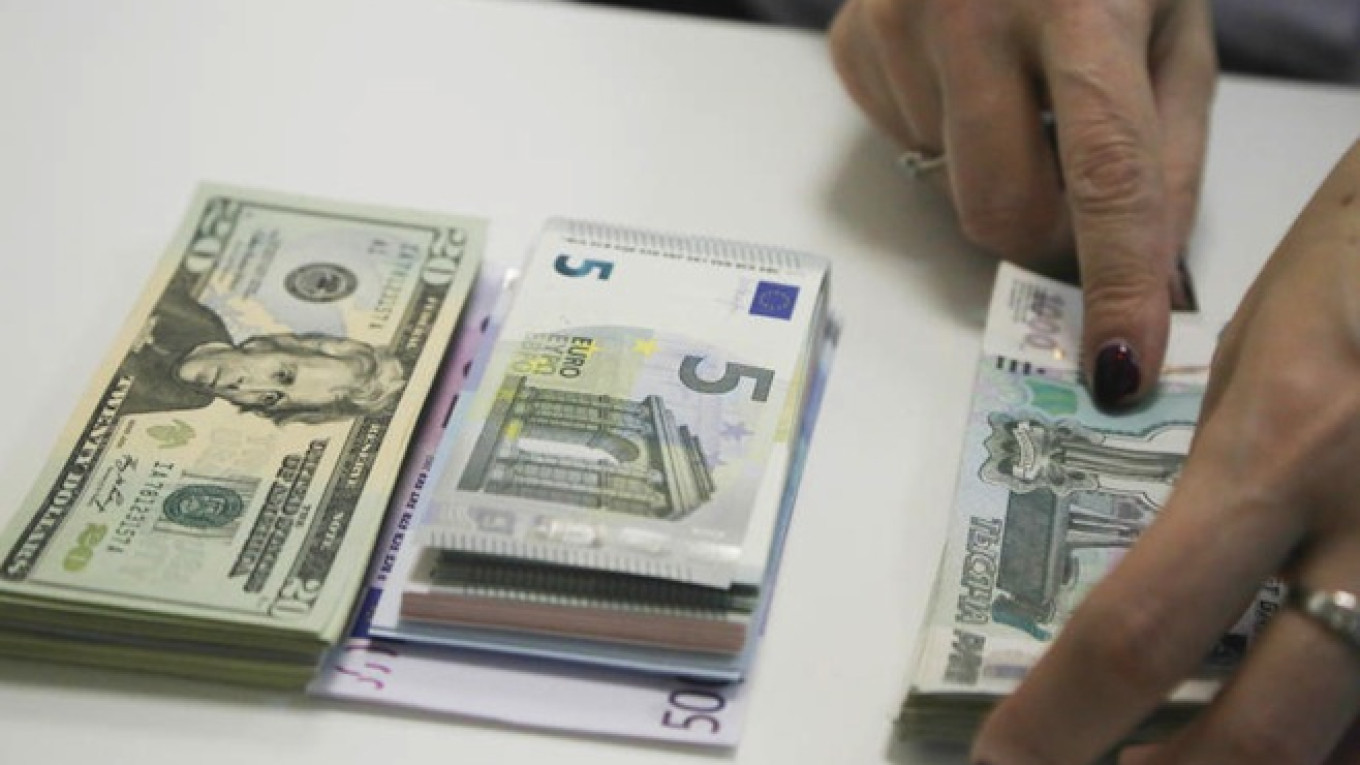LONDON — Russian bond yields surged to multi-year highs on Thursday as food import restrictions fanned inflation fears, while the ruble hit new 4-1/2 month lows and blue-chip stocks sank still further.
President Vladimir Putin ordered food import restrictions on countries that have imposed sanctions on Moscow over the Ukraine crisis, a decision that will hurt the West but will also exacerbate Russian inflation and deepen its isolation.
The dollar stands just off 11-month highs against a basket of currencies after a raft of robust economic data that indicated the U.S. Federal Reserve is on course to start raising interest rates from next year.
Russian stocks hit three month lows, with shares in food retailer Magnit — a favorite with foreign equity investors — slumping more than 3 percent after news of the food import ban.
Russian bonds took a heavy hit from the news, with some analysts estimating the import ban would add 1.5 percentage points to annual inflation, already running around 7.5 percent year-on-year.
Ten-year yields hit 4-1/2-month highs, having risen 150 basis points this month, while the five-year yields were at two-year highs.
Alfa Bank analyst Natalia Orlova said earlier meat import bans had already led to an 11 percent year-on-year increase in meat prices. Ruble weakness — the currency is down 10 percent this year so far — would add to pressures, she added.
"The ban on food imports ... requires a revisiting of the short-term and medium-term inflation outlook, which has deteriorated significantly in recent months," Orlova said.
However, she predicted the Central Bank would not raise rates in response. "As the inflation shock is largely non-monetary, we believe that ability to repress it through monetary instruments will be limited, and we see an inflation target at 8 percent for 2015."
Shares also felt the heat from government plans to raid pension savings for the second year in a row, with state-run banks Sberbank and VTB down 2 percent.
The losses have rippled outwards, with food companies' shares dipping across Europe. Polish stocks in particular fell more than 1 percent, with meat producer Duda down 0.3 percent, extending Wednesday's 1.3 percent fall.
See also:
A Message from The Moscow Times:
Dear readers,
We are facing unprecedented challenges. Russia's Prosecutor General's Office has designated The Moscow Times as an "undesirable" organization, criminalizing our work and putting our staff at risk of prosecution. This follows our earlier unjust labeling as a "foreign agent."
These actions are direct attempts to silence independent journalism in Russia. The authorities claim our work "discredits the decisions of the Russian leadership." We see things differently: we strive to provide accurate, unbiased reporting on Russia.
We, the journalists of The Moscow Times, refuse to be silenced. But to continue our work, we need your help.
Your support, no matter how small, makes a world of difference. If you can, please support us monthly starting from just $2. It's quick to set up, and every contribution makes a significant impact.
By supporting The Moscow Times, you're defending open, independent journalism in the face of repression. Thank you for standing with us.
Remind me later.


